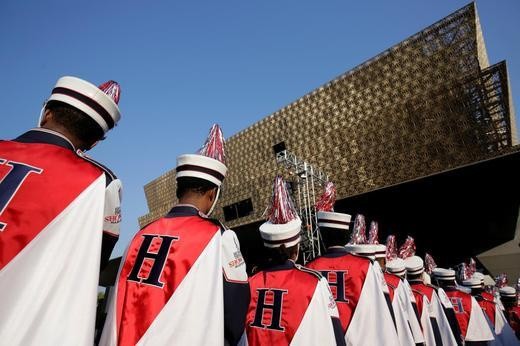Watchdog Group Claims Graduates of Black Colleges Pay More In Loans

Graduates of historically black institutions are getting charged higher interest rates on student loans, a watchdog group said in a report released Wednesday.
The Student Borrow Protection Center is a non-profit, watchdog group that aims to alleviate student debt. The group performed a comparison using characters of identical backgrounds through an online lending platform called Upstart.
Upstart is a fairly prominent fintech that claims it considers educational data. It is also easy to apply and get loan offers from the platform using its website.
For each profile, they used nearly identical aspects--- a 24-year-old man who is currently living in New York, is working as a financial analyst, and is making roughly $50,000 a year. For every application, the group changed only one factor: the undergraduate college.
The group used many schools including NYU in New York, and Howard University, which is one of the country's most famous historically black institution.
Researchers found that graduates who attended nonminority serving institutions were offered college loans that cost thousands of dollars less than those who graduated from minority-serving colleges and universities.
For a loan amount of $30,000, graduates of Howard University were charged $3,499 more than the graduates of NYU. NYU graduates would pay a $35,093 college loan, while Howard graduates were expected to pay $35,676.
Graduates of New Mexico state University-Las Cruces, an institution with a high percentage of Hispanic students, were offered even higher loan rates.
Further research suggests graduates from community colleges paid more than those from four-year institutions.
"Big banks and fintech "innovators" are embracing education data when making new consumer loans. In doing so, these companies may be unlawfully discriminating against people of color and exacerbating economic inequality," Welbeck, the civil rights counsel of the group, said in their report "Educational Redlining."
What does Upstart have to say?
Upstart CEO Dave Girouard said the company examines more than 1,000 factors.
"We are absolutely supportive of the intent that credit shouldn't be biased or unfair in any way," Girouard said.
He also refuted the claims of the watchdog group, claiming it doesn't prove discrimination. He also said his company is being monitored by regulators to ensure fairness for millions of applicants.
Upstart's head of communication Diana Adair claims the firm has conducted its own research with the Consumer Financial Protection Bureau. The company's report contradicts those written in "Education Redlining."
Adair goes on to call the methodology from the watchdog group's study as "inaccurate and misleading." She claimed that the data submitted by the organization were different credit reports, which she said was the factor that affected the interest rates offered for the loans.
The Student Borrower Protection Center maintains its stand, stating they used the company's own data to arrive at its results. They are now calling for Congress to "deploy its legislative and investigatory tools to protect consumers."
The report has caught the attention of legal experts. Advocates are worried about the report introducing biases in a new way because of the wide net it used for data and decisions. Welback claims her group is only pushing for transparency from fintech companies.
Upstart's CEO Dave Girouard said his company is willing to sit down with the watchdog group to talk about its concerns over loan rates.
Subscribe to Latin Post!
Sign up for our free newsletter for the Latest coverage!
© 2025 Latin Post. All rights reserved. Do not reproduce without permission.













